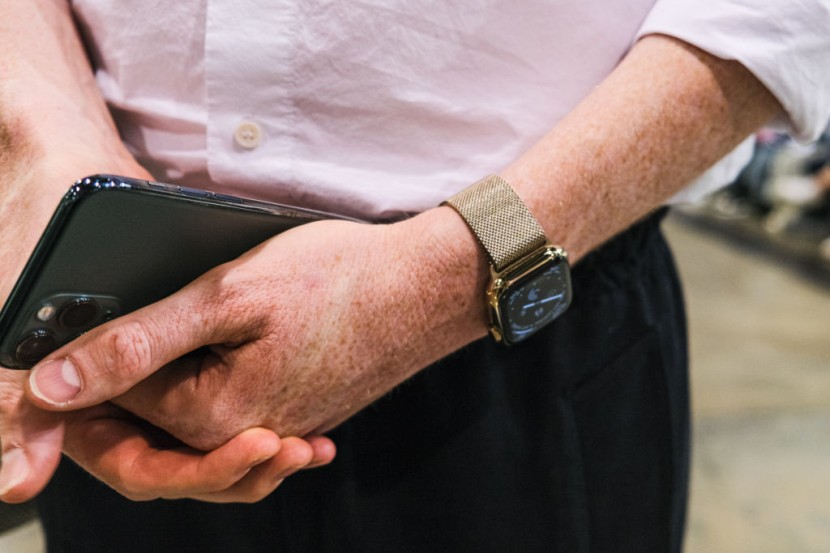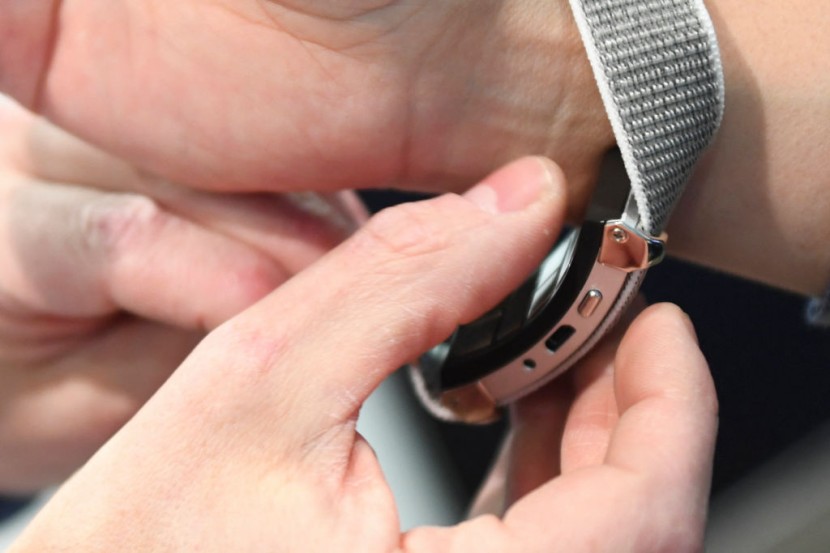A new study has found that Apple Watch and Fitbit wristbands can harbor harmful bacteria, which could potentially lead to alarming health problems.
A recent study published in the science journal Advances in Infectious Diseases warned that most wristbands contain bacteria like E.coli.
Apple Watch and Fitbit Wristbands Carry Harmful Bacteria, Study Warns

In a world where our wrists are adorned with sleek and stylish gadgets, a startling revelation has emerged from the depths of scientific scrutiny. The Apple Watch and Fitbit smartwatches are two of the most popular options out there. It lets tech aficionados and health-conscious folks check important information from the comfort of their wrists.
However, a recent study showed that they are hotbeds of microscopic activity that might leave some squirming.
According to The New York Post, the study by the Florida Atlantic University (FAU) found that the wristbands of both devices were contaminated with bacteria, including some known to cause infections. The researchers also found that the levels of bacteria were higher on wristbands that had been worn for longer periods.
The research shows that roughly 95 percent of wristbands contain harmful bacteria. The experts looked into various types of bands, including leather, gold, silver, plastic, rubber, and cloth.
The precise findings are much more alarming. Around 85 percent of the wristbands included Staphylococcus spp. It could leave staph infections in users. And according to The Daily Mail UK, it could also trigger pneumonia.
On the other hand, roughly 60 percent contained E.coli bacteria, whereas approximately 30 percent had the deadly Pseudomonas spp contamination.
A Florida Atlantic University biological sciences professor Nwadiuto Esiobu says, "The quantity and taxonomy of bacteria we found on the wristbands show that there is a need for regular sanitation of these surfaces." Esiobu is also the senior author of a recent study.
Read Also : Cancer Surge: Scientists Baffled by Sudden Rise in Number of Cases Among Young Americans
Which Wristband Harbored Fewer Bacteria?

The study shows that rubber and plastic bands harbored the most bacterial colonies, around 15,200 cfu/cm2. Meanwhile, gold and silver wristbands were impressive at only 18 cfu/cm2.
With that in mind, the researchers conclude that the bacteria load is worst with a cloth wristband. The study finds that plastic and rubber are next to cloth when it comes to the trend of bacterial load. Leather is next to rubber, while metal, such as gold and silver, had the least bacterial colony.
The study's authors say the best defense against harmful bacteria is disinfection. They suggest using both 70 percent ethanol and Lysol Disinfectant. The Telegraph reports that using apple cider vinegar is not as effective as this combo.
The researchers believe this disinfection method is "highly effective regardless of the wristband material with 99.99 percent kill rate within 30 seconds."
Related Article : Facebook Messenger Apple Watch App Shuts Down This June
© 2026 HNGN, All rights reserved. Do not reproduce without permission.








